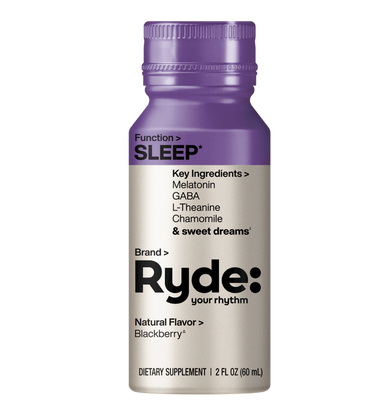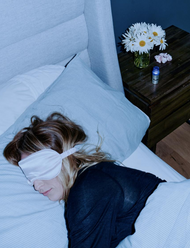Understanding Your Sleep Cycle
Posted by By Hannah Kilpatrick & Jack Cotter, PhD on 10/1/2025
We spend about one-third of our lives asleep. For something so essential, most of us know very little about what’s actually happening in the body once we close our eyes. We know it’s important, especially after a night of only two hours (hello, coffee and questionable decisions), but what’s really going on behind the scenes?
Sleep isn’t one long, uninterrupted state. It’s made up of a series of distinct stages that repeat in cycles throughout the night, each with its own role in restoring the mind and body.
The Two Main Types of Sleep
Sleep is divided into two major categories:
- NREM (Non-Rapid Eye Movement)
- REM (Rapid Eye Movement)
NREM sleep is further broken down into three stages, each progressively deeper. The typical sequence looks like this: awake → Stage 1 → Stage 2 → Stage 3 → back to Stage 2 → REM. A full sleep cycle takes about 90 to 110 minutes, and we go through four to six cycles per night.
What Happens in Each Stage
Stage 1: Light Sleep
This is the transition from wakefulness to sleep. Brief, light, and easily disrupted. You might twitch, hear your name and jolt awake, or feel like you weren’t fully asleep at all. It only lasts a few minutes.
Stage 2: Onset of Real Sleep
Heart rate and breathing slow. Body temperature drops. Muscles relax. You’ve officially entered deeper sleep. This stage grows longer with each cycle and eventually accounts for about half of your total sleep time.
Stage 3: Deep (Slow-Wave) Sleep
The most restorative part of the night. Brain waves slow down dramatically. This is when the body repairs muscle tissue, boosts the immune system, and consolidates physical recovery. Waking up during this stage often leads to grogginess or brain fog. It makes up around 25% of total sleep.
REM Sleep: Where Dreams Happen
Despite being asleep, the brain becomes highly active... similar to wakefulness. Eyes move rapidly behind closed lids, and this is when most dreams occur. REM also plays a key role in emotional processing and memory consolidation. Early REM stages are short (about 10 minutes), but the final one can last up to an hour.
Why This Matters
The structure and balance of your sleep cycles matter. A night filled with disruptions can cut short important phases (particularly deep sleep and REM) leaving you feeling drained even after what seemed like a full night’s rest.
Factors like age, stress, alcohol, caffeine, illness, and certain medications can shift how much time you spend in each stage. Over time, these disruptions can affect mood, memory, immune function, and even long-term health.
Sleep isn’t just “rest.” It’s when the brain stores memories, clears waste, and resets for another day. It’s when the body repairs tissue, balances hormones, and recharges energy stores.
Understanding your sleep cycle won’t solve every restless night, but it can give you a clearer picture of what your body needs, and why better sleep isn’t just about more hours... it’s about better balance!






